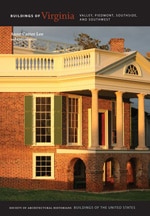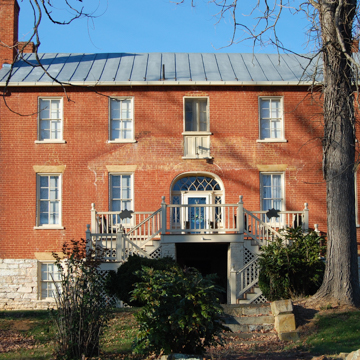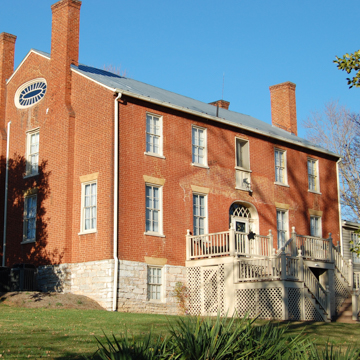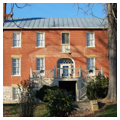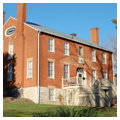You are here
Herring Hall (Clover Hill)
Built for David Greenlee on his six-hundred-acre plantation, this was the last of the “Seven Hills” houses (see RB32). The double-pile, central-passage house with a one-story kitchen wing is nestled into a sloping bank and approached by several levels of stone and wooden stairs. The five-bay facade has an elliptical-arched door with a decoratively mullioned transom and sidelights. Unusual features include the arched hallway and a service stairway between the two rooms on the north. This second stairway was found in at least two other of the “Seven Hills” houses and may represent a local preference for a private, less formal access to the bedrooms rather than just a service stair. The house also has a principal rafter roof, something necessary because of the great span of its depth. In 1901 William C. Herring purchased the house and renamed it. From 1926 to 1970 the house served as an inn and restaurant, and now is a bed-and-breakfast. One notable outbuilding is the octagonal, brick smokehouse.
Writing Credits
If SAH Archipedia has been useful to you, please consider supporting it.
SAH Archipedia tells the story of the United States through its buildings, landscapes, and cities. This freely available resource empowers the public with authoritative knowledge that deepens their understanding and appreciation of the built environment. But the Society of Architectural Historians, which created SAH Archipedia with University of Virginia Press, needs your support to maintain the high-caliber research, writing, photography, cartography, editing, design, and programming that make SAH Archipedia a trusted online resource available to all who value the history of place, heritage tourism, and learning.




















